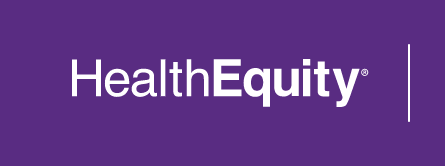A flexible spending account (FSA) empowers employees to pay for certain medical expenses with pre-tax funds. FSAs are popular accounts because of the tax benefits they provide to employees and to their employers.
Here are some common questions that your employees may have about FSAs:
1. What are the main types of FSAs?
There are four main types of FSAs:
Health Care FSA: This type of FSA can be used for qualified medical expenses, including deductibles, copayments and coinsurance.
Limited-Purpose FSA: This type of FSA can be used in conjunction with an HSA and allows employees to contribute additional pre-tax dollars for dental and vision expenses.
Post-Deductible FSA: This type of FSA can be used certain medical expenses once a specified minimum deductible has been met.
Dependent Care FSA, or DCRA: This type of FSA can be used for qualified dependent care expenses, including day care, preschool, elderly care or other dependent care. This type of FSA can only be used if the dependent care is necessary for your or your spouse to work, look for work or to attend school full-time.
2. How much can I contribute to an FSA?
The contribution limit for a healthcare FSA in 2018 is $2,650 per year per employer, though your employer may specify a lower limit. If your spouse works, they can contribute the same maximum amount in an FSA with their employer as well. For a dependent care FSA, the contribution limit is $5,000 per household.
3. Do I have to spend all the money in my FSA by the end of the year?
In general, the money in an FSA must be spent by the end of the year. However, employers may offer their employees one of these two options:
- Grace period: Allows for a maximum of an extra 2 ¬Ω months to use money in the FSA for expenses incurred the following plan year.
- Carryover: Allows for up to $500 to be carried over and used in the following year.
Employers can offer one of these options but not both. Neither of these options is required.
4. Can I have an FSA and a health savings account (HSA)?
In general, you cannot have both an HSA and an FSA. The only exception is a Limited-Purpose FSA which can be used for dental or vision expenses only.
5. Can I use my FSA funds to pay for health insurance premiums?
No, FSAs cannot be used to pay for insurance premiums. You can, however, use FSA funds to pay for deductibles and copayments, certain medical expenses, prescription drugs and to cover the costs of certain medical equipment (bandages, crutches, etc.). Learn more about qualified medical expenses from HealthEquity.
6. How does an FSA save me money on taxes?
Employees can contribute pre-tax dollars to their FSA. This lowers their taxable income and allows them to "save an equal amount to the taxes you would have paid on the money you set aside." Employers also receive a tax benefit for funds deferred to an FSA.
7. Can employers make contributions to employees' FSAs?
Employers are allowed to contribute to an employee's FSA, but there are many restrictions and risks that usually make it too complicated for employers to participate. Most employers don't contribute to employees' FSAs.
8. If I leave my employer, can I still keep my FSA funds?
Your FSA comes as part of your employer's benefits program so, if you leave your job, you could forfeit some (or perhaps all) of the money you contributed. Some employers do offer some time for you to submit claims, and if you elect COBRA, you may be able to extend the amount of time to use your FSA. Usually your last day on the job is also the last day you can incur expenses for your FSA.
9. Can I pay for a qualified medical expense out-of-pocket and then reimburse myself from my FSA?
While many FSA providers offer debit cards, most providers support the option for you to pay for medical expenses out-of-pocket and then reimburse yourself for the expense. You'll need to check with your specific FSA provider to learn how to spend your FSA funds as well as how to submit a reimbursement form, if applicable.
10. What is the main difference between an FSA and a health reimbursement account (HRA)?
The main difference is how the two accounts are funded. An FSA is usually funded by the employee, while an HRA is funded through employer contributions. Employees can have both of these accounts at the same time.
To learn more about FSAs, please visit healthequity.com/learn/flexible-spending-account.
Have any questions we missed? Let us know in the comments.
HealthEquity does not provide legal, tax, financial or medical advice.


